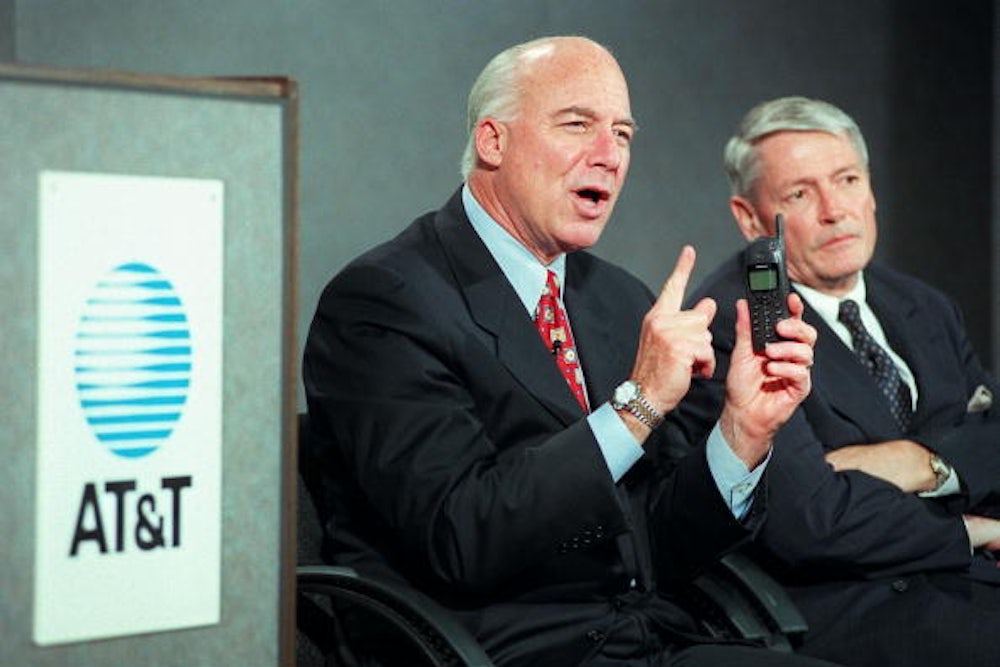On Saturday, AT&T approved an $85.4 billion deal to acquire Time Warner, which, pending the permission of shareholders and federal regulators, could transform the telecommunications company into one of the country’s largest content producers and distributors. Not only would AT&T control the means by which we communicate, like internet and phone service, but also the content we consume on those channels, ranging from entertainment programming on HBO to news on CNN.
Internet scholars from Lawrence Lessig, author of Code, to Tim Wu, who coined the term “net neutrality,” have predicted this kind of media consolidation and believe it will centralize the web at the expense of individual user freedom. In the words of Politico’s Ken Doctor, “My god, has it really come to this: the phone companies running the internet, the supposedly freeing innovation of all time?”
From its inception in 1874, AT&T controlled the entire U.S. telecommunications industry, operating all local and regional telegraph lines. In 1986, the Justice Department finally won a landmark anti-trust suit against the company on the principle that it had misused its “position in the telecommunications market to suppress competition and enhance its monopoly power.” The company was broken up and left as a shadow of its former self.
The federal government, however, may not be able to quash AT&T’s growing information empire as it once did. While both Hillary Clinton and Donald Trump have called for stricter policies on media consolidation, a controversial provision of the 1996 Telecommunications Act allows for “media cross-ownership.” It was originally intended to allow “anyone [to] enter any communications business”—but it may be having the exact opposite effect in permitting a telecom giant like AT&T to produce content that it can prioritize on its own services.
The internet democratized information. As Wu writes in his book Master Switch, it gave “individuals a degree of control, of decision-making power unprecedented in a communications system.” But if AT&T and other companies continue to extend their control over how we consume information, that decision-making power weakens.
